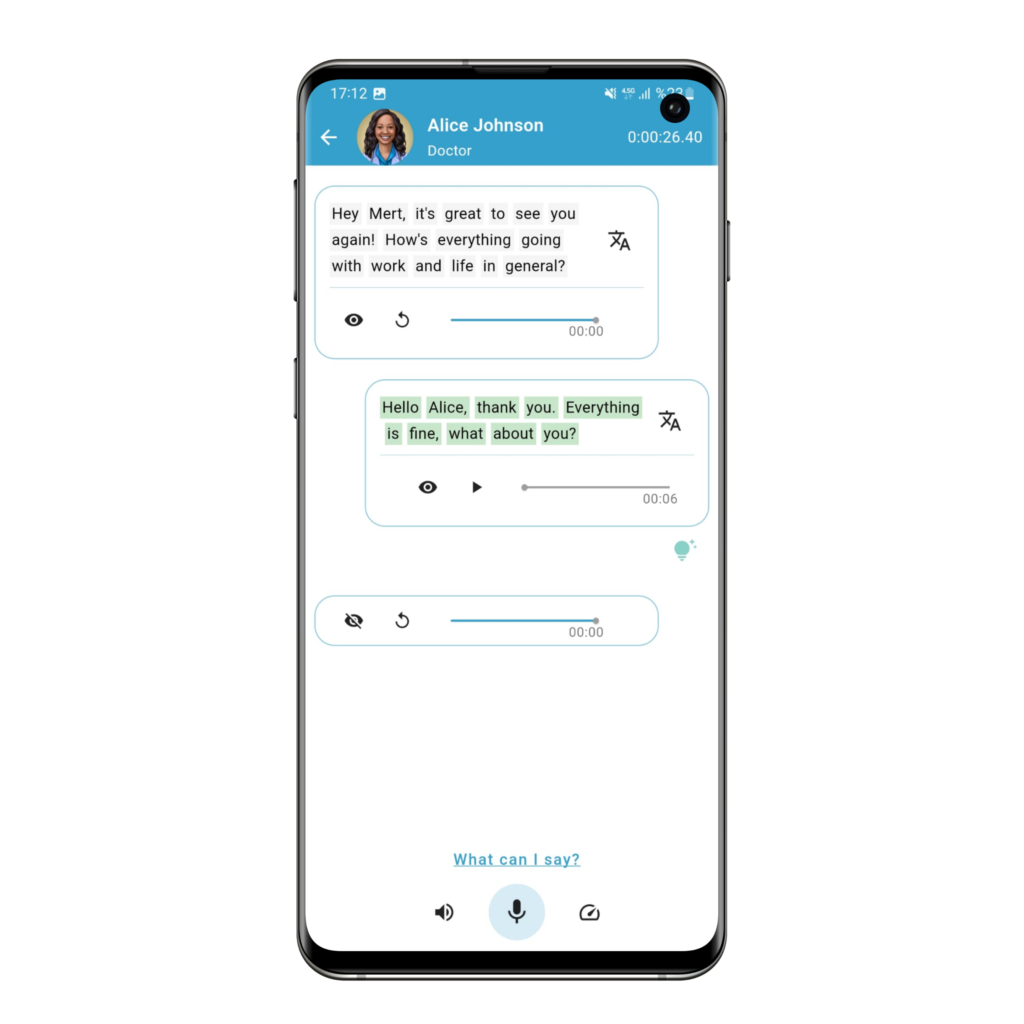Looking to improve your spoken English skills in a safe and judgment-free environment? Download Tutor AI today!
Hello everyone, this is Elodie Bellerose. In my previous blog, “Building Vocabulary for Better Speaking“, we delved into the importance of expanding your vocabulary and using various strategies to learn new words. Today, we’ll explore further into how to incorporate these new words and phrases into your day-to-day communications effectively.
When we speak, our aim is not merely to make some noise but to convey our intentions, thoughts, and ideas. This transmission requires robust language skills, and a crucial component of that is our vocabulary. Therefore, learning new words and phrases is fundamental in improving our English speaking skills.
Integrating new words into your everyday speech can initially feel awkward and uncomfortable. Let’s take an example of a new word: “serendipity,” which means a pleasant surprise or a fortunate occurrence by chance. It may not be a part of your regular vocabulary, and you might feel slightly out of place using it in normal conversation.
To overcome this, I emphasize practicing. Start by saying the word aloud to yourself. Feel it roll off your tongue. The idea here is to get used to the pronunciation and the feel of the word. Our example word, “serendipity,” has a distinct rhythm to it that you get accustomed to when you repeat it.
Next, try to incorporate the new word into a sentence. It might be something as simple as “I experienced serendipity when I found a $50 bill on the street.” This helps you understand the word’s context and how it can be used.
An excellent method to use new words is to find synonyms for the ones you use regularly. For example, if you often use the word ‘happy,’ try using words like ‘elated’, ‘content’, ‘overjoyed’, ‘pleased’, or ‘thrilled’. The phrase “I am ecstatic about my English progress” can replace the duller “I am happy with my English progress”.
Now, let’s talk about phrases. English is full of beautiful yet complex idiomatic expressions and phrases that can add more depth and color to your speech. For instance, instead of saying ‘very tired,’ say ‘exhausted.’ Don’t just describe yourself as busy, but be ‘up to your ears’ in work.
Next, practice, practice, and practice. There is no alternative to it. Use the new words and phrases as much as possible in your conversations, emails, chats, or any other form of communication. Remember, it’s okay to make mistakes here — that’s part of the process.
Keep a language journal. Document the new words and phrases that you learn every day, and make it a point to revisit them regularly. Write down their meanings, synonyms, antonyms, and their usage in a sentence. This keeps the new entries fresh in your mind.
An overlooked technique is shadowing. Listen to English speeches or watch English series or movies, and then try to ‘shadow’ or mimic the phrases and words used. It’s a fun way to imbibe new language elements and understand their usage in a natural context.
Lastly, be patient. Building vocabulary is not an overnight journey, it is a marathon. Sometimes, even after hours of practice, a word might slip from your memory while speaking. It’s alright. Take a deep breath, and continue.

In conclusion, learning and using new words and phrases could be the ‘elixir’ that your English speaking skills need. It might seem ‘daunting’ at first, but once you ‘delve’ into it and ‘imbibe’ the practice, you’d be ‘elated’ by the progress you make. See what I did there? I just used our newly learnt words and phrases in a sentence. Doesn’t it make our language richer and more vibrant?
That’s all for today. Please subscribe and stay tuned! We’ll be diving into pronunciation tips in our next session. Keep practicing, and remember, every word is a step closer to fluency!


